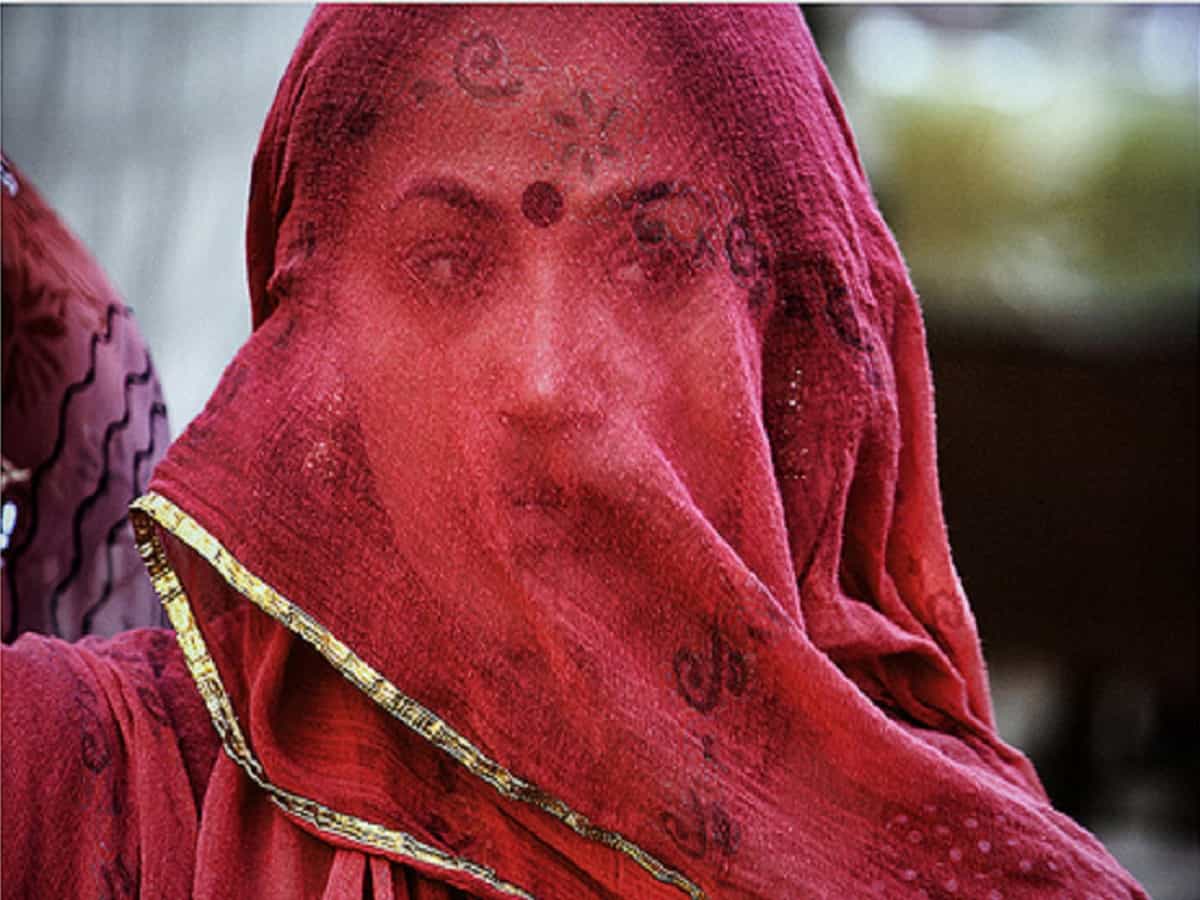Jaipur: At a programme in Jaipur, organized by an NGO, on Tuesday, Rajasthan Chief Minister Ashok Gehlot stressing on the importance of women empowerment, has called for an end to the regressive custom of ‘ghoonghat’ (veil).
“Time has changed now but the practice of ‘ghoonghat’ is still there in villages. What is right in confining a woman to ‘ghoonghat’? Women cannot progress till the ‘ghoonghat’ exists,” Gehlot said.
“Women are empowered. They have the capacity to bring changes in society and their role is very crucial. You (women) move forward with strength, the State government is with you,” he added.
Meanwhile, Jaipur’s district administration has kicked off a campaign to ‘eradicate’ the ‘regressive practice’ of ghoonghat, as per reports.The campaign in Jaipur is known as “Ghoonghat Mukt Jaipur.” (Veil free Jaipur)
The Ghoonghat side
However, during the second phase of panchayat election on Wednesday, women who lined up to cast their vote wore ‘ghoonghats’, and said they found nothing wrong in the custom.
“It is our tradition and we find nothing wrong in it. Aajkal padhi likhi ladkiyon ko fate kapde pahanne se koi nahi rokta, unhe sharm nahi aati aur hame kahte hai ghoonghat hatao (Nobody stops educated girls from wearing torn jeans and ask us to remove veils),” said Rami Devi, 45, who turned up at Tilak Nagar polling station in Barmer.
Laxmi Devi, also present at the polling station, said there was no link between ‘ghoonghat’ and freedom. “There are so many women who wear ‘ghoonghat’ and after they are elected sarpanch do great development works. ‘Ghoonghat’ is not a hurdle in our freedom,” she said.
Gehlot, in December, had called for an end to the regressive practice of ‘ghoonghat’ and said women cannot be empowered till they remain behind the ‘ghoonghat’.
Activists support ‘Ghunghat Mukt Campaign’
Sarita Maurya, a social activist and project coordinator of NGO Action Aid in Jaisalmer, said that it is good initiative by the chief minister. “No change will take place overnight; every change needs time to take place. And in case of such orthodox practices, it will take time. Society should join hands otherwise government could not do anything,” she said.
Kanchan Rathi, a social activist, said that when the sarpanch candidate, who will be responsible to lead the area for the next five years, have not shown the courage to leave this centuries-old regressive practices, how we can expect the common women to step out of their house without covering their face.
At an event on November 5 last year, the chief minister had expressed his disappointment over the practice and said it must be eradicated as times have changed.
Later, he also wrote a post on Twitter and urged that if we want women to play a constructive role in society then the practice of ‘ghoonghat’ should be abolished.
Manoj Gujar, social activist and local voter said that ‘goonghat’ is a traditional practice. “When we look at history, we find that the reason for women covering their faces was invasion by Muslim rulers in the 14th and 15th centuries. The women covered themselves to save them from the invaders. But this practice has been conditioned as a culture and became a reason to put women behind a veil and not let them claim their position in society.”
Officials said the administration was working at three levels to create awareness: first is through posters, through ratri chaupals (night meetings) and through meetings ahead of the panchayat polls; secondly, the administration is also giving the message and creating awareness during the ratri chaupal of the collector; and thirdly, a month before the polls, the saathins of the WCD department held meetings with women in villages to talk on the issue of ‘ghoonghat’.
Meanwhile, following the call by the CM, the women empowerment directorate of the state has started motivating women to give up the practice. Recently, during a video conference with district collectors, the chief minister asked officials to take initiatives in their districts to get women out of the regressive custom. The government functionaries and NGOs have been roped in to organize rallies, meetings and poster campaigns in villages and schools to motivate men and women.

